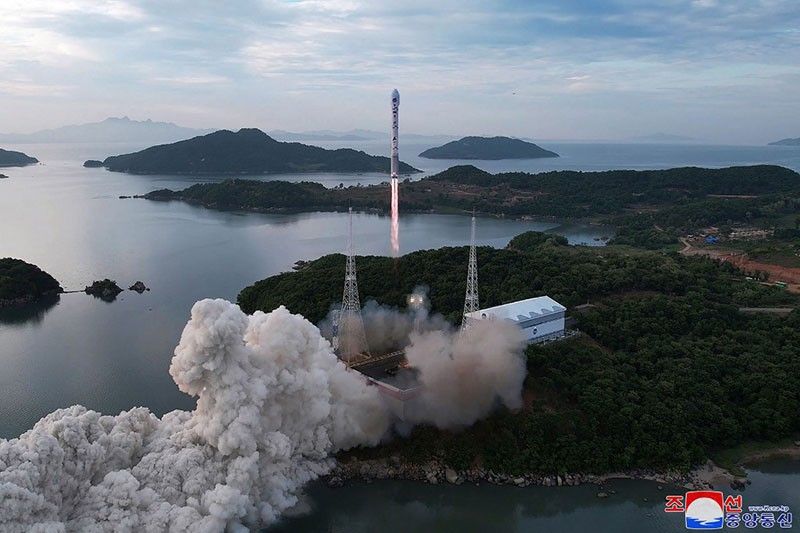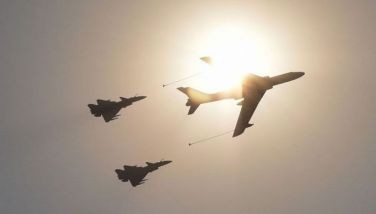North Korea says spy satellite launch ends in failure, again

SEOUL, South Korea — North Korea's latest attempt to put a spy satellite into orbit has ended in failure, state media said Thursday, just months after Pyongyang's first such launch crashed into the ocean shortly after blast off.
North Korean leader Kim Jong Un has made the development of a military eye in the sky a top regime priority, with his nuclear-armed country claiming it is a necessary counterbalance to growing regional activity by US forces.
Pyongyang's National Aerospace Development Administration "conducted the second launch of reconnaissance satellite Malligyong-1" early Thursday, the official Korean Central News Agency said.
"The launch failed due to an error in the emergency blasting system during the third-stage flight," the report said, adding the problem was "not a big issue" and vowing to conduct a third attempt in October.
South Korea's Joint Chiefs of Staff said it had detected the launch of the purported space rocket at around 3:50 am (1850 GMT Wednesday) and that it had flown through international airspace over the Yellow Sea.
Seoul held a National Security Council meeting slamming both the Thursday launch and Pyongyang's earlier attempt in May, saying the country was "squandering scarce resources on reckless provocations while blaming lower officials for the economic situation that is driving its people to starvation and death".
The launch was first signalled by the Japanese government, which called it "extremely problematic" and issued a brief warning to residents of the southern Okinawa region to take cover.
Pyongyang had previously told Japan's coast guard the launch would take place between August 24 and 31, prompting Tokyo to mobilise ships and its PAC-3 missile defence system.
The launch came days after leaders from Washington, Seoul and Tokyo met at Camp David in the United States, and follows the start of major US-South Korea joint military drills on Monday.
Known as Ulchi Freedom Shield, the annual exercises, which always infuriate Pyongyang and have already been targeted by North Korean hackers, will run through August 31.
Relations between the two Koreas are at their lowest point in years, and diplomacy is stalled after failed attempts to discuss Pyongyang's denuclearisation.
Kim has declared North Korea an "irreversible" nuclear power and has called for ramped-up arms production, including tactical nuclear weapons.
'Space is hard'
In May, Pyongyang launched what it described as its first military reconnaissance satellite, but the rocket carrying it, the "Chollima-1" -- named after a mythical horse that often features in official propaganda -- plunged into the sea minutes after takeoff.
The crash sparked a complex, 36-day salvage operation that saw South Korea retrieve parts of the rocket and satellite for analysis, later saying they had no military utility.
"Though still a failure, the flight progressed further than the previous attempt," Joseph Dempsey, a researcher at the International Institute for Strategic Studies, told AFP.
"Space is hard," he added.
Experts said that the failure of the launch wasn't "entirely unexpected," but warned that Pyongyang was likely to get it right eventually.
"They'll continue to iterate toward a successful launch," US-based analyst Ankit Panda told AFP.
Jeffrey Lewis, a non-proliferation expert at the Middlebury Institute of International Studies, said that the third stage was "a common failure point".
"It's important to keep in mind that engineers learn from failure," he said.
"Many of the early US Redstone rockets failed... Eventually, they figured it out, and so will North Korea," he said.
"Maybe the third time will be the charm for Kim," added Soo Kim, policy practice area lead at LMI Consulting and former CIA analyst.
- Latest
- Trending




























